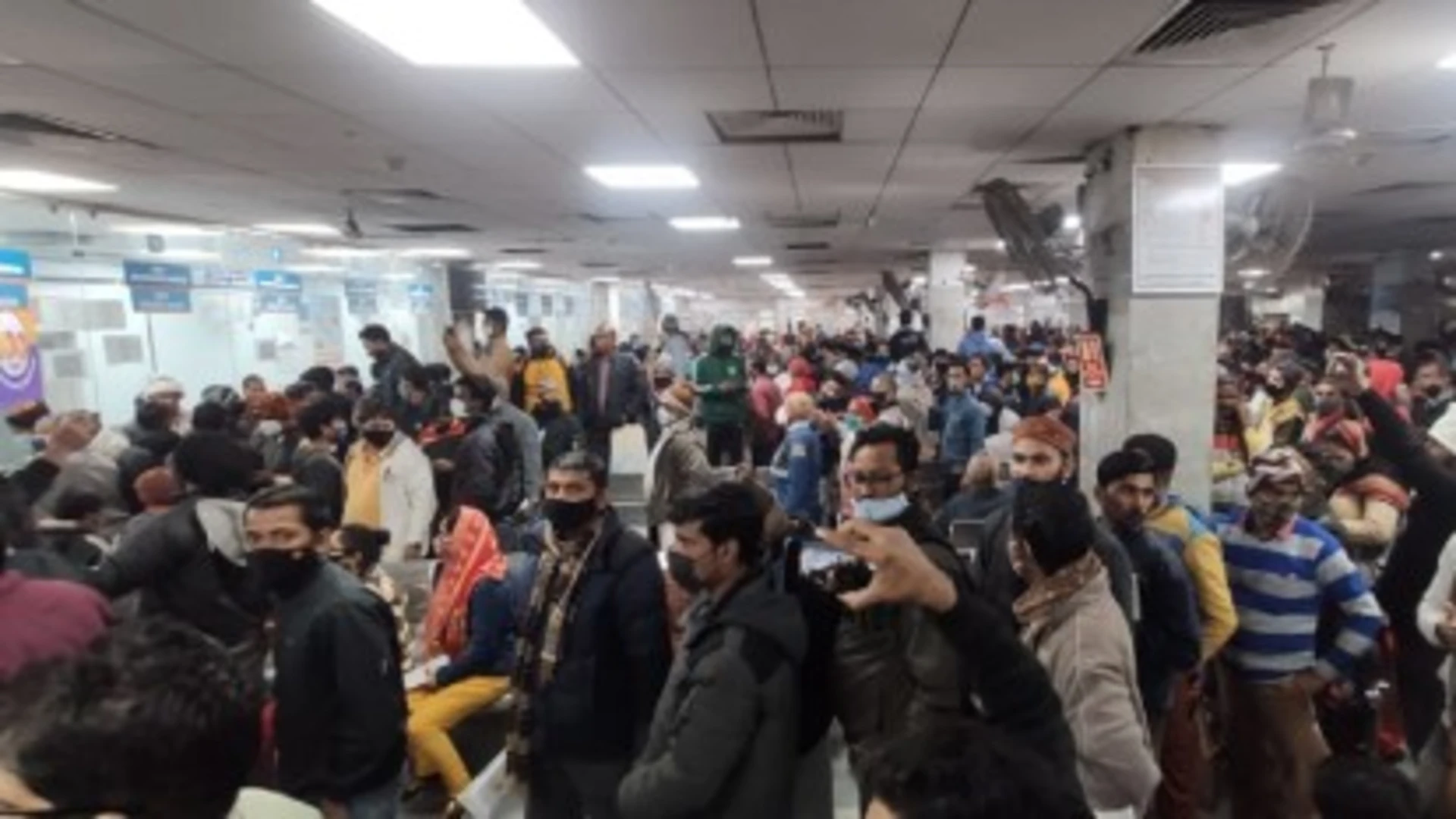As Delhi grapples with air pollution, several patients with respiratory problems are visiting the OPD of the Pulmonology Department in New Delhi’s All India Institute of Medical Sciences (AIIMS), a doctor said on Thursday. Scores of patients were seen at the OPD of the Pulmonology Department, AIIMS, as shown in visuals.
Dr. Karan Madan, Associate Professor in the Department of Pulmonary, Critical Care, and Sleep Medicine at AIIMS says, “We are seeing that patients are having a lot of problems. Patients who have respiratory diseases like asthma, and COPD patients. We are seeing a lot more patients in the OPD now. Many patients have complained their asthma is getting worse.”
He added, “And many of our patients have come with severe exacerbation, what we call a severe worsening of symptoms. And many patients have required admission also. So I think it is a tough time for our patients who have respiratory problems…”
Dr. Madan advised patients with respiratory problems to stay indoors and avoid exposure to outdoor activity. “We have seen approximately a 15 to 20 per cent increase in the number of patients who have come with worsening respiratory problems, patients who have pre-existing asthma, we are seeing a lot more patients with asthma exacerbation…Patients who have respiratory problems must avoid exposure to outdoor activity,” he said. “If you want to exercise, better would be to exercise indoors so that your air pollution exposure is less. If you have asthma, take your inhalers regularly…,” Dr. Madan added.
Delhi’s air quality has deteriorated significantly in recent days, with the Air Quality Index (AQI) reaching hazardous levels. On November 1, 2024, the city recorded an AQI of 428, indicating severe pollution levels.
This spike in pollution has been attributed to several factors, including the defiance of firecracker bans during Diwali celebrations, which led to a thick smog enveloping the city.
The surge in respiratory issues among Delhi residents is a direct consequence of this deteriorating air quality. Hospitals across the city have reported a significant increase in patients experiencing respiratory distress. The Delhi Pollution Control Committee (DPCC) anticipates that pollution levels will remain high in early November due to increased incidents of stubble burning in neighboring states.
In response to the escalating health crisis, the Delhi government has implemented several measures to combat air pollution. These include fines for owners of polluting vehicles and construction sites, as well as discussions about inducing artificial rain to alleviate the smog.
Residents are advised to take precautions to protect their health during this period of severe air pollution. Staying indoors, using air purifiers, and wearing masks when outside can help reduce exposure to harmful pollutants. Those with pre-existing respiratory conditions should follow their treatment plans diligently and consult healthcare providers if symptoms worsen.
Also read: India is pushing for $1 trillion climate finance deal at COP29
The current situation underscores the urgent need for comprehensive strategies to address air pollution in Delhi, involving coordinated efforts from government authorities, healthcare providers, and the public to mitigate health risks and improve air quality in the long term.







